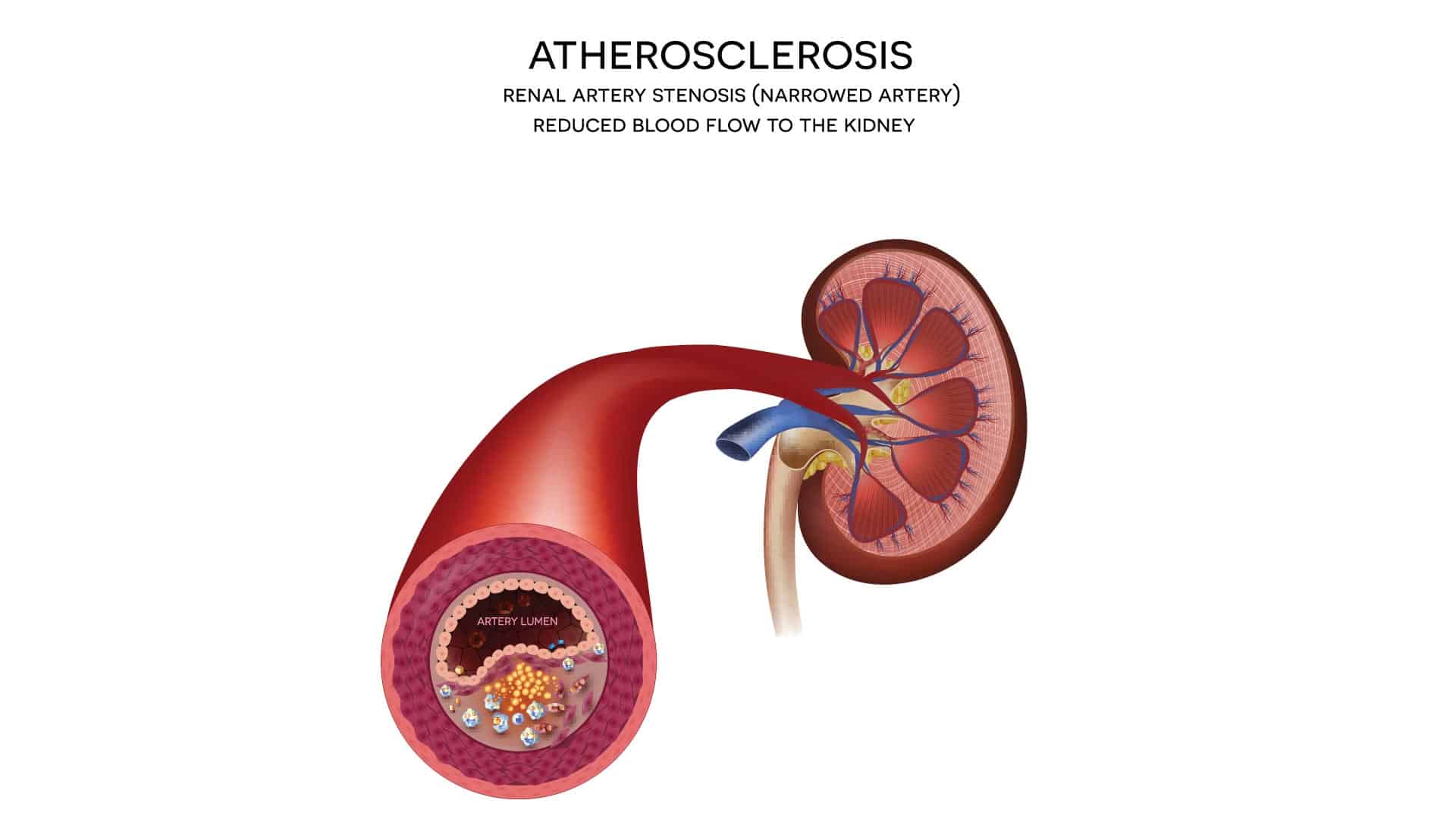When someone has renal vascular disease, their blood isn’t flowing normally to and from the kidneys. This can cause health complications including high blood pressure, kidney damage, and kidney failure.
Renal vascular disease involves the hormone renin, which raises blood pressure. When you have decreased blood flow to the kidneys due to renal vascular disease, you may have too much renin in the blood which results in excessively high blood pressure.
Renal vascular disease is related to the following conditions:
- Renal artery stenosis (RAS), a narrowing of the artery to the kidneys
- Renal artery thrombosis, a blood clot in the artery to the kidney
- Renal vein thrombosis, a clot in a vein to the kidney
- Renal artery aneurysm, from a weak area in the wall of the artery to the kidney
- Atheroembolic renal disease, from plaque breaking off and moving through the blood



